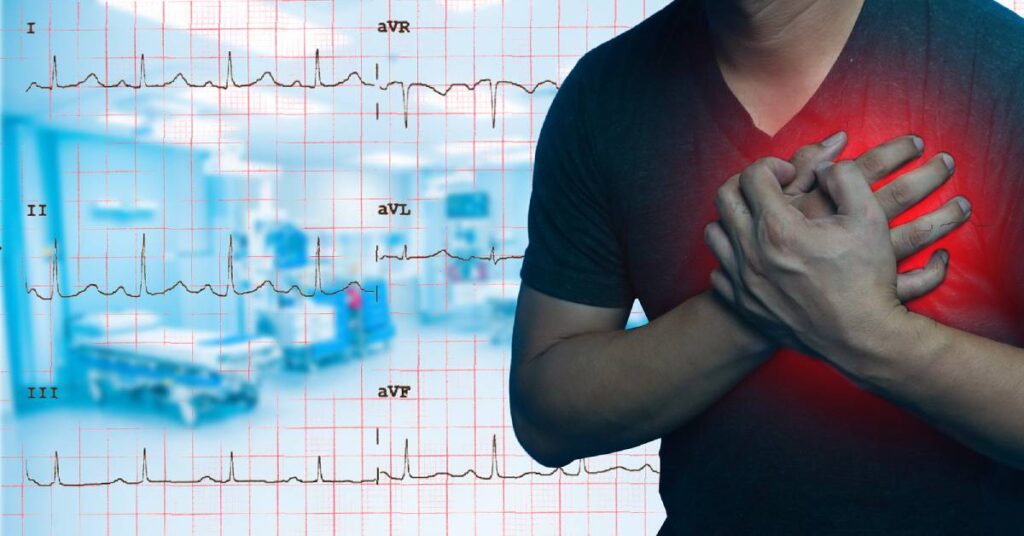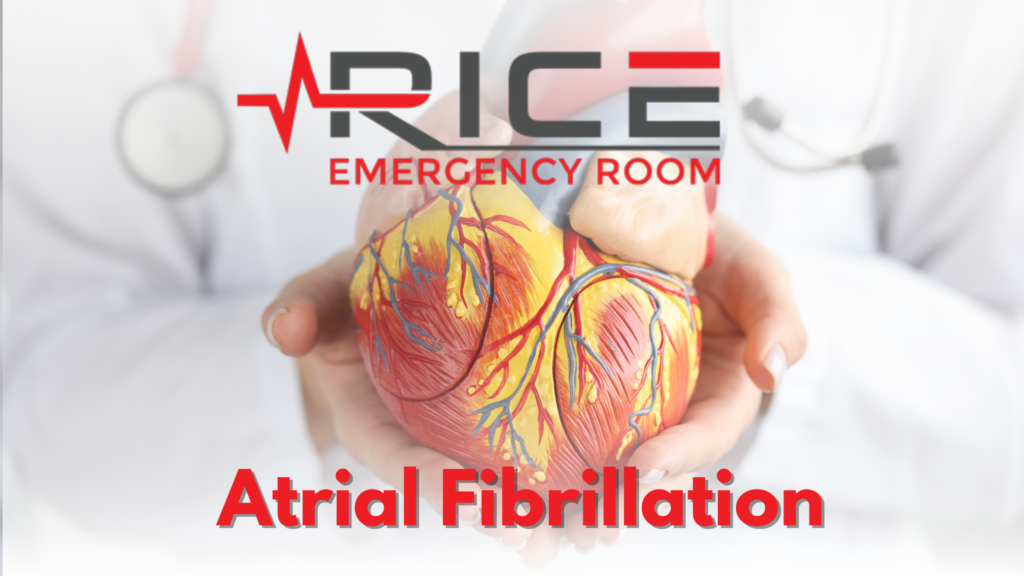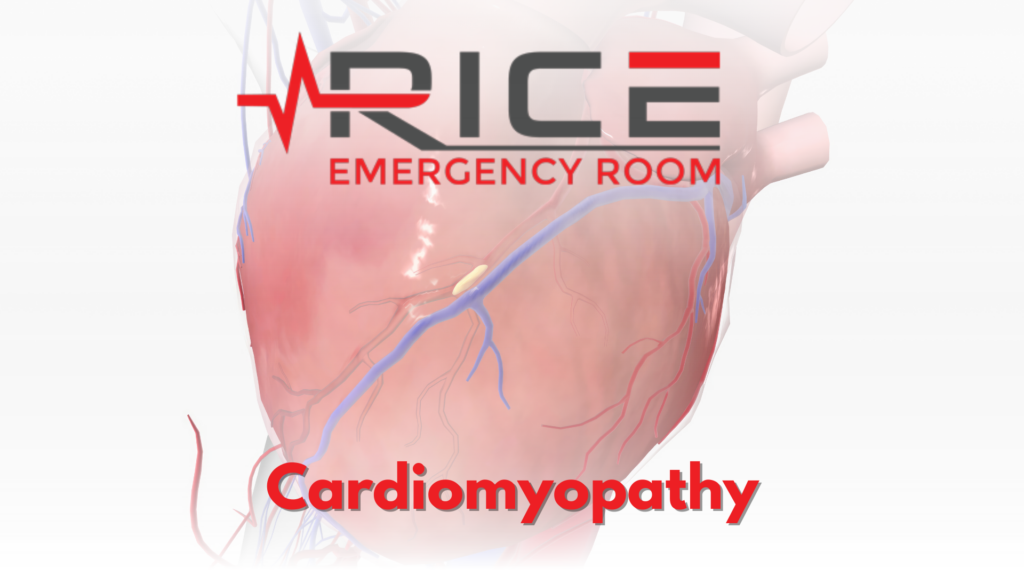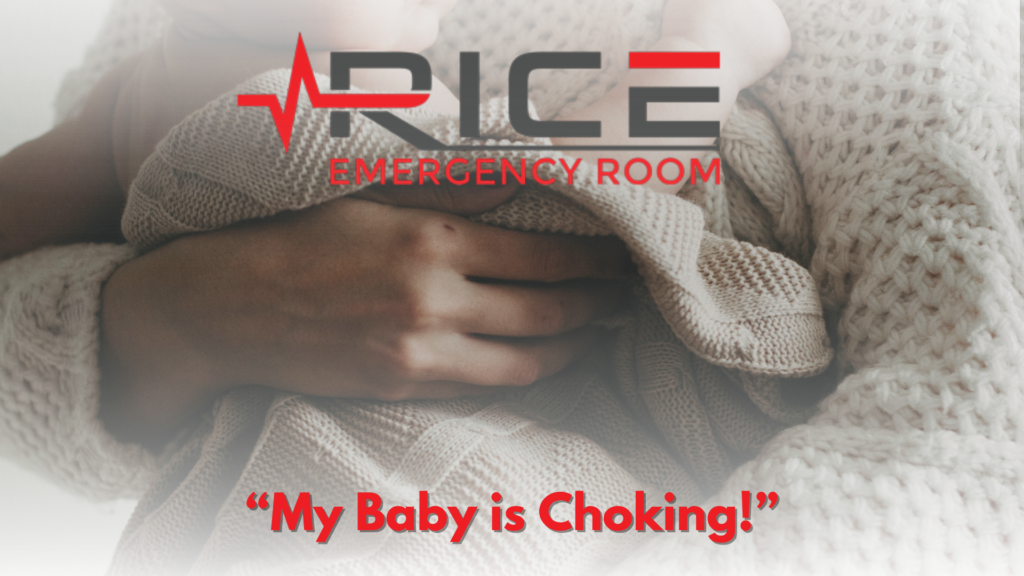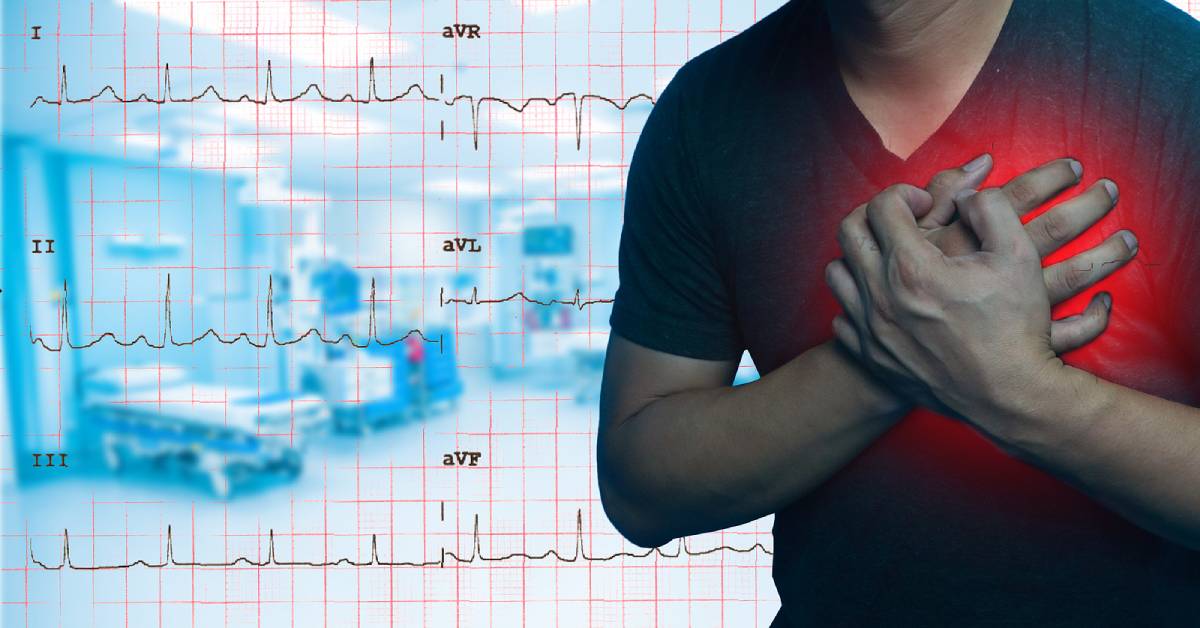
Chest pain emergencies can be serious, and it is important to seek immediate medical attention if you are experiencing chest pain. Chest pain that is accompanied by other symptoms such as difficulty breathing, dizziness, or nausea may be a sign of a more serious condition and should be treated right away with a trip to the Emergency Room.
At the Emergency Room, your doctor will perform a thorough evaluation to determine the cause of your chest pain. This may include taking your medical history, performing diagnostic tests such as blood work or an electrocardiogram (ECG), or ordering imaging scans like an X-ray or CT scan to get a clearer picture of what is going on in your body.
Symptoms of Chest Pain Emergencies
Symptoms of chest pain may include pressure or tightness in the chest area, as well as aching or squeezing feeling in the middle of the chest that can spread to other parts of the body, such as the shoulder, arm, back, neck, jaw, teeth, and upper abdomen. Other potential symptoms may include stomach pain, heartburn, indigestion or nausea; breathing difficulty; dizziness or light-headedness; fainting; sweating; and other discomforts.
Causes of Chest Pain
The most common cause of chest pain is muscle strain or tension in the chest muscles. This type of chest pain usually resolves quickly with rest and over-the-counter pain medication. Another common cause is heartburn, which occurs when stomach acid seeps up into your esophagus, causing a burning sensation in your chest and throat. Heartburn typically responds well to antacids or medications intended to reduce stomach acid production.
Other potential causes include lung infections, such as pneumonia or fungal infection; anxiety or stress; and certain medications. Some cancers can also cause chest pain, so it’s important to check with your doctor if your chest pain does not resolve quickly or is accompanied by other symptoms, such as difficulty breathing or coughing up blood.
Angina and Chest Pain
Angina is a type of chest pain that is caused by reduced blood flow to the heart. This condition occurs due to blockages in the arteries or damage to the heart muscle, and it can be a sign of serious cardiovascular issues like a heart attack or stroke. Symptoms of angina may include shortness of breath, tightness or pressure in the chest, palpitations, sweating, nausea, and dizziness.
If you experience any symptoms of angina, it is important to seek medical attention right away. Treatment options typically include medications and lifestyle changes such as quitting smoking and managing stress levels. With early diagnosis and appropriate treatment, most people with angina are able to manage their condition effectively and enjoy long-term health and well-being.
Heart Attack
A heart attack, also known as a myocardial infarction, occurs when there is a severe blockage or reduction in the blood flow to the heart. This can happen due to a buildup of fat, cholesterol, and other substances in the heart arteries, known as plaques. When these plaques rupture or become unstable, they can form blood clots that further restrict or completely prevent blood flow to the heart. Without adequate blood flow, the heart muscle may be damaged or destroyed, leading to serious complications.
If you are experiencing any symptoms of a possible heart attack, it is important to seek medical attention right away. There are many treatments that can help to restore blood flow and prevent further damage, including medications such as aspirin or nitroglycerin to help improve blood flow, lifestyle changes such as quitting smoking or making dietary modifications, and in some cases, surgery or other procedures.
Rice Emergency Room
Rice Emergency Room is staffed with specialized Board Certified ER Physicians who will evaluate your chest pain and provide emergency treatment.

